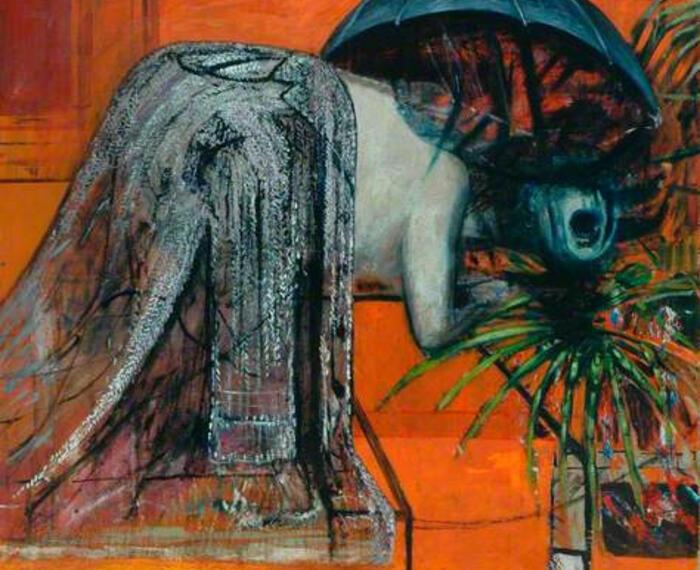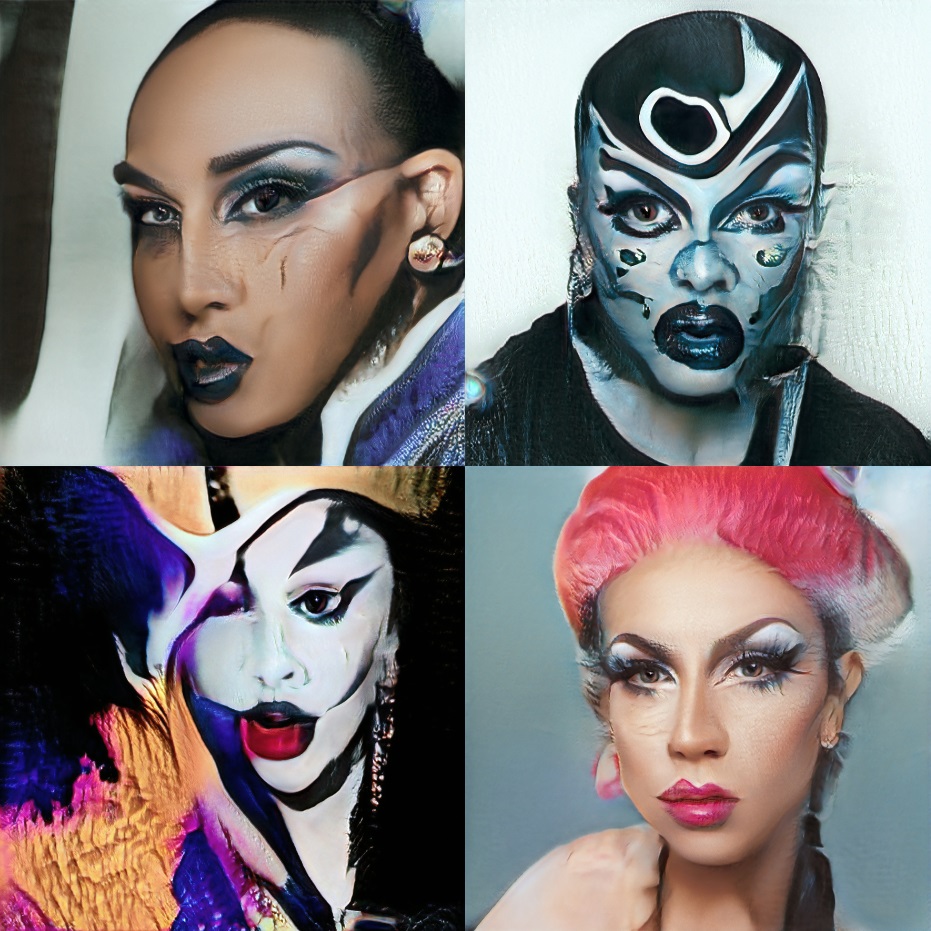


Jake Elwes, ZIZI, (2019-ongoing) - montage of machine learning generated drag looks for Zizi. Image courtesy of the artist.
Today, machine learning technology is more advanced than it has ever been. Computers are able to generate entirely new, realistic human faces and identify people and objects, coming ever closer to mimicking human behaviours. However, in comparison to human capabilities, Artificial Intelligence (AI) remains primitive.
Emerging from a traditional artistic training at the Slade School of Art, Jake Elwes (b.1993, London) explores the tension between AI’s abilities and its failures. His practice makes use of machine learning’s sophistication, whilst finding artistic qualities in its limitations. For example, his early work Auto-Encoded Buddha (2016), inspired by media art pioneer Nam June Paik (b. 1932, d.2006), places a Buddha statue in front of a computer screen, trying (and failing) to generate an image of the statue. The colours on the screen resemble a shimmering sunset capturing something strangely beautiful in the machine’s breakdown. While it may seem that the AI is the creator of the artwork, Elwes is careful to point out that the AI has neither intentionality nor agency.
According to Elwes, AI is much discussed today, but the mainstream conversation appears not to have moved beyond the 1980’s sci-fi vision that placed the focus on the dangers of the technology. However, the artist maintains that fearmongering based on dystopic scenarios distracts from more pressing issues such as representation and bias. His current work Zizi (2019) is an ongoing project that explores machine learning’s blind spots. It employs a dataset that is used to train machines to generate realistic human faces. The dataset consists of American celebrity faces, so the absences in this selection create biases in the machines they train. For example, facial recognition has problems recognising trans and non-binary people.
Interested in exploring ideas of gender further, Elwes created Zizi (@zizidrag on Instagram) by injecting the dataset with 1,000 images of drag performers. This creates a series of morphing faces, rejecting realistic representations for the hyperrealism of drag performance’s exaggerated contouring and enlarged features such as eyes and lips.
Elwes is quick to point out that while AI seems to be somewhat in vogue in the art world at the moment, the technology itself is here to stay. It is extensively used by governments and researchers, though in his opinion this is somewhat limiting. He believes the artist can take a leading role in contributing to philosophical and ethical discussions that are not always priorities for scientists. Elwes is at the forefront of communicating the hidden capabilities of the technology and his practice successfully reflects this vision.
Jake Elwes’s most recent solo show took place at the Zabludowicz Collection, London in Spring 2019. His current show Mind the Deep – Artificial Intelligence and Artistic Creation continues at Ming Contemporary Art Museum, Shanghai until 9 February 2020, and he is participating in an upcoming exhibition entitled Writing the History of the Future at the Centre for Art and Media, Karlsruhe from 23 February 2020.